U.S. Army Korean War Naperville, IL Flight date: 08/18/21
By Charlie Souhrada, Honor Flight Chicago Veteran Interview Volunteer
In 1958, one decision changed the course of Ron Michalski’s life. As he served in the Army over the next three years, the boy from Chicago’s South Side became a man who helped to carve roads in mountains, build missile sites and save families from seasonal floods halfway around the world. On August 18, he’ll make another leap when he becomes one of the honored veterans on Honor Flight Chicago’s inaugural flight, post-pandemic.
Born in Chicago, May 27, 1937, Ron remembers his parents, Roman and Genevieve, had worked hard to provide a good life for him and his sister, Angelica. “My mother was a homemaker who ran a leather goods store where she made leather jackets for law enforcement,” he explains. “Dad worked his entire life for Curtiss Candy Company. During World War II, he spent long hours making candy for military K-Rations and C-Rations. He’d leave the house before I got up for school and return home when I was in bed. My dad was my idol.”
After elementary school at St. Mary Magdalen, he entered Mount Carmel High School. A family move to Riverdale earned him the nickname “Farmer ” because the village was surrounded by cornfields at the time. “High school was busy for me. I was on-again off-again on the wrestling team because of job conflicts; then the same thing happened when I graduated in 1954 and attended DePaul.” At DePaul, he studied business during the day, and worked from 3–11:00pm most days at Bliss & Laughlin Steel Company in Harvey.
“I was bored, but knew I wanted more out of life,” Ron remembers, “That’s when I decided to take control and enlisted.”
Ron began his Army service in 1958. He found a good fit thanks to ROTC training at DePaul and some industrial management classes he had taken at Thornton Jr. College in Harvey. He even enjoyed Basic Training at Ft. Leonard Wood, Missouri. “Basic was fun for me,” he remembers. “I was comfortable with weapons and only pulled KP duty once!”
After completing Basic, Ron took specialized training at Ft. Bliss, Texas, where he became reacquainted with the 3:00 – 11:00 p.m. work shift, translating detailed engineering schematics. Nine months later, he shipped out to Korea from Ft. Lewis, Washington aboard the USS General M. M. Patrick (AP-150). The voyage took two weeks. He vowed that when he returned to the States, he’d take anything but a troopship.
A brief stop in Hawaii provided a memorable experience when he witnessed a woman drive up to the Royal Hawaiian Hotel in Honolulu. “I remember she was driving a beautiful Cadillac convertible. When she stopped at the front of the hotel and got out, I saw she was wearing a muumuu dress, a freshly-cut flower lei and had bare feet. That was quite a sight for a kid from Chicago!”
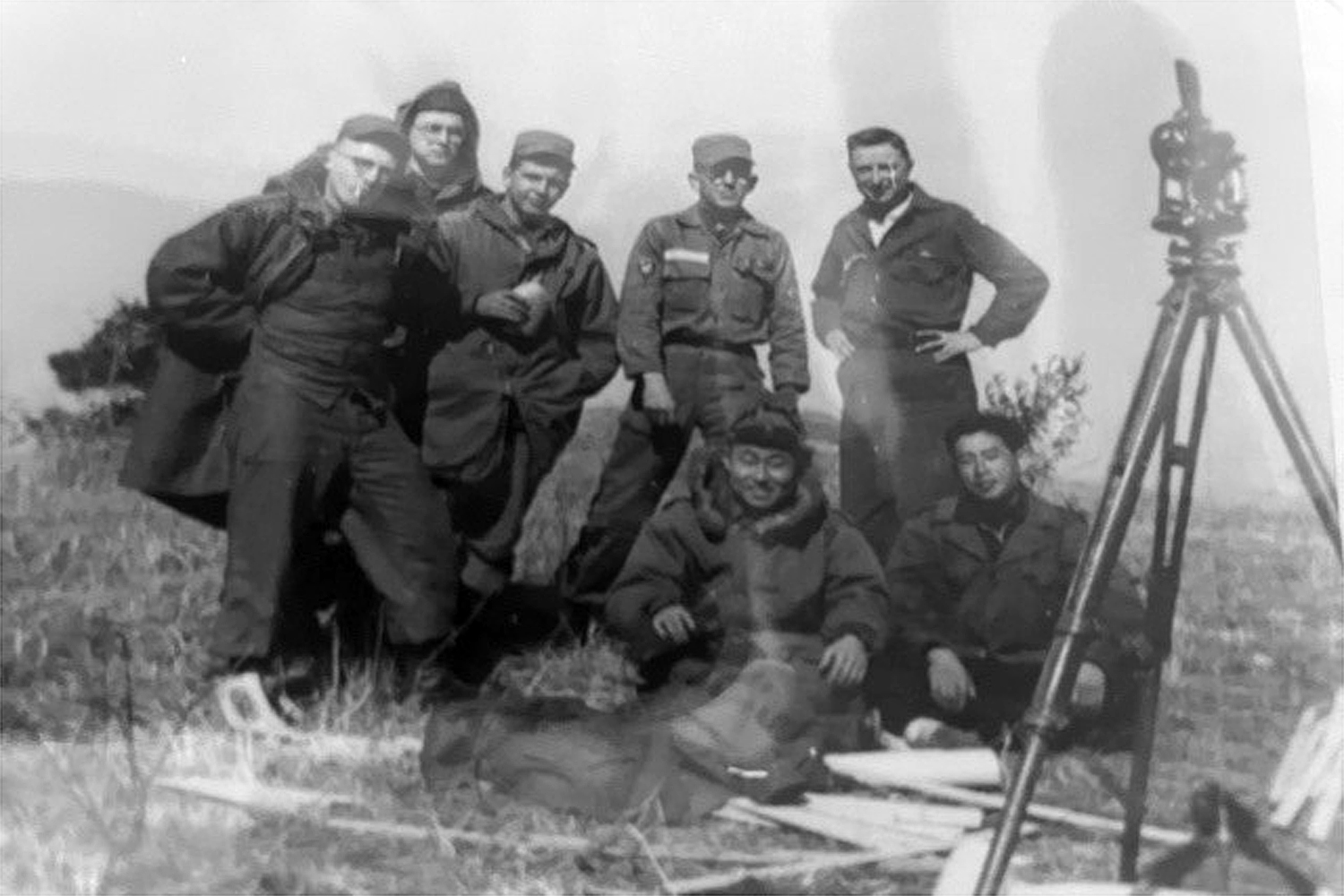
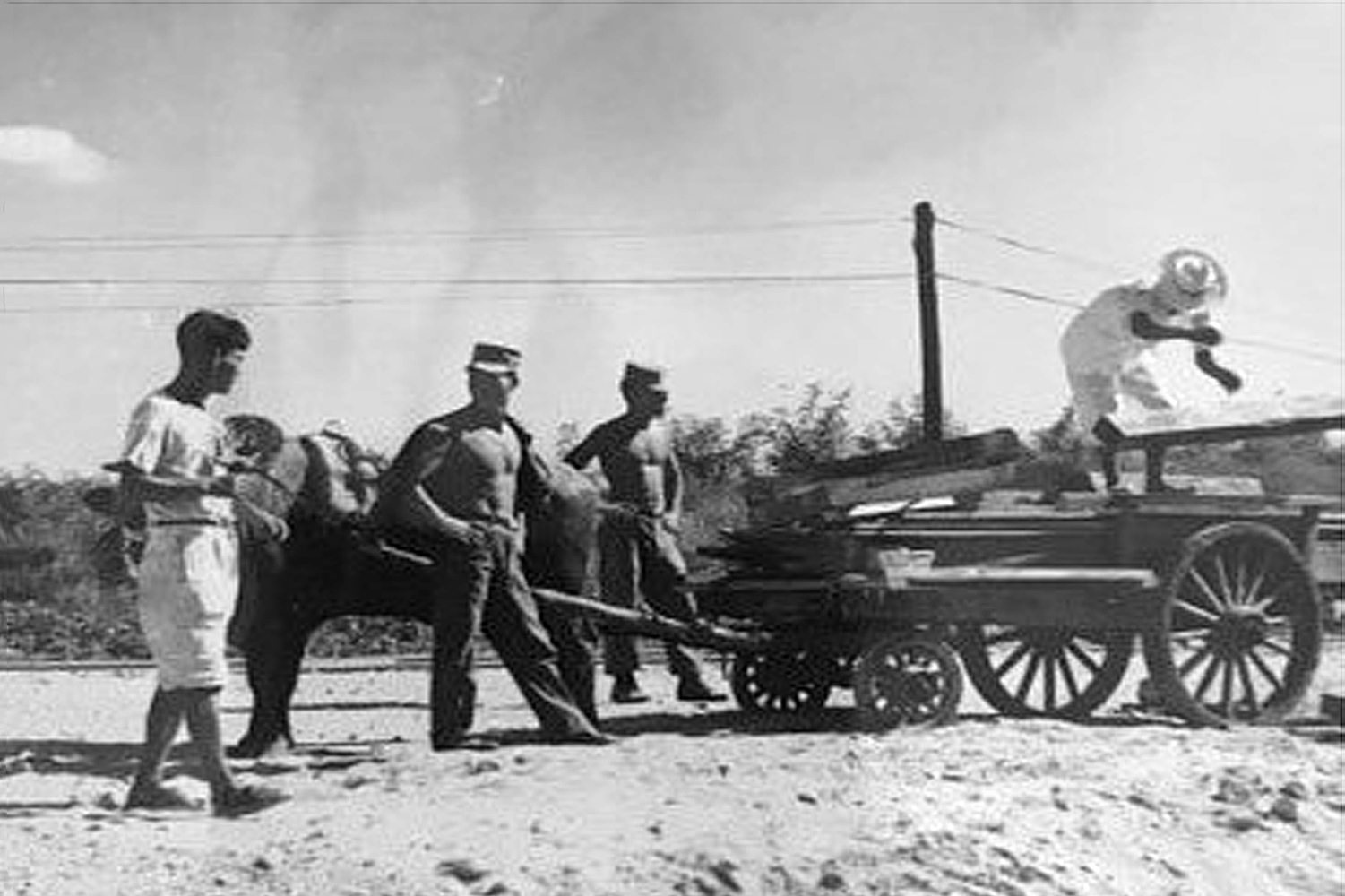
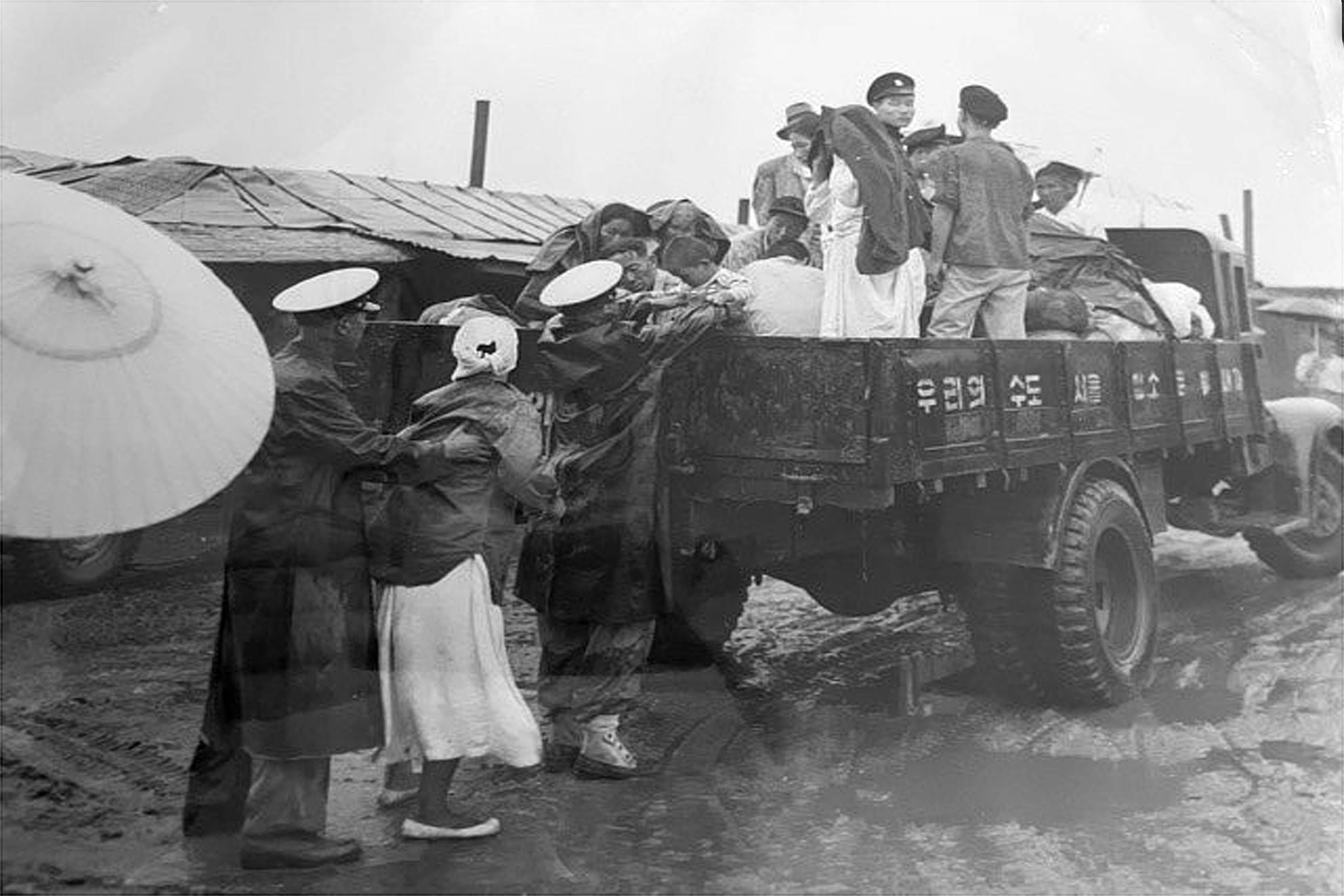
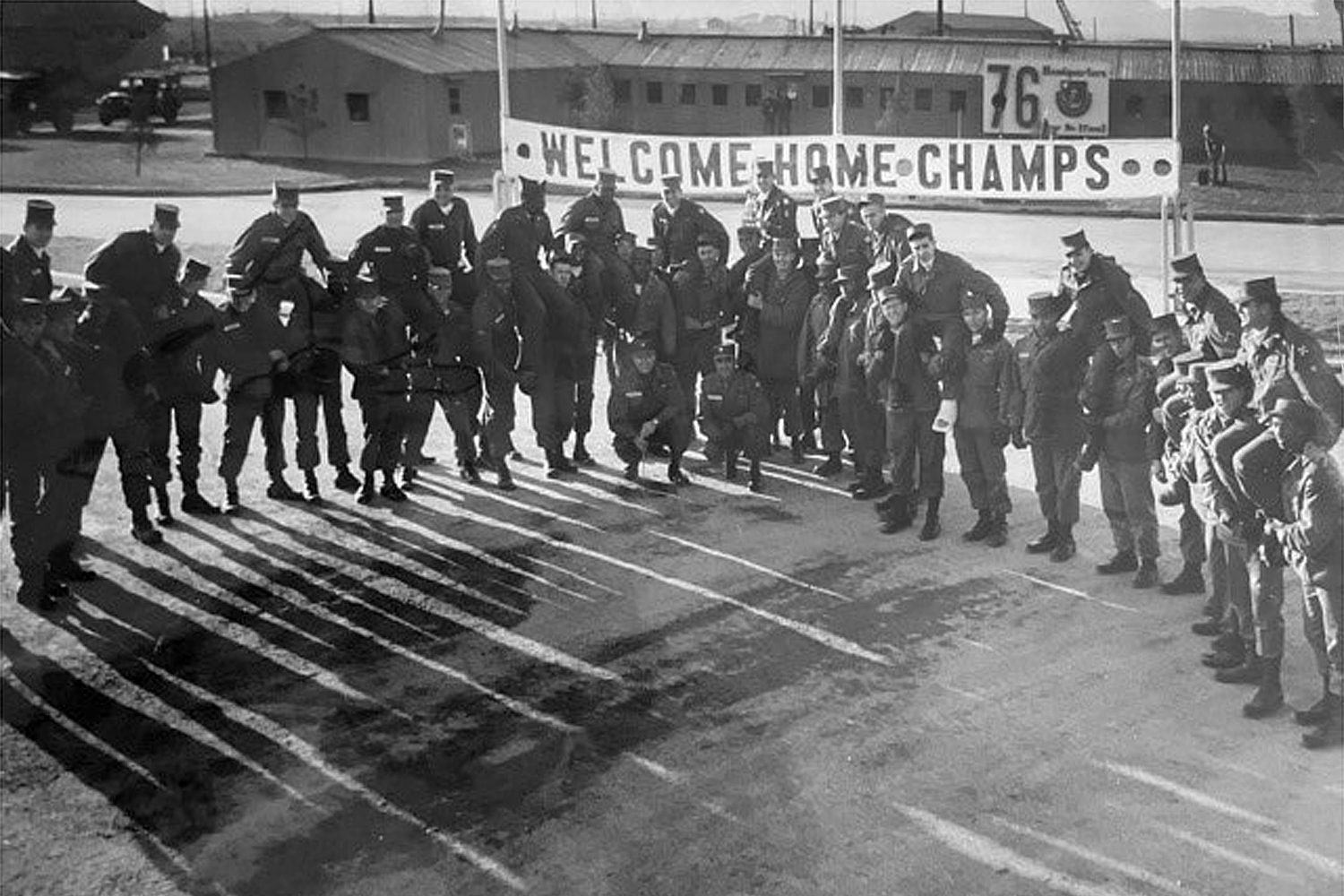
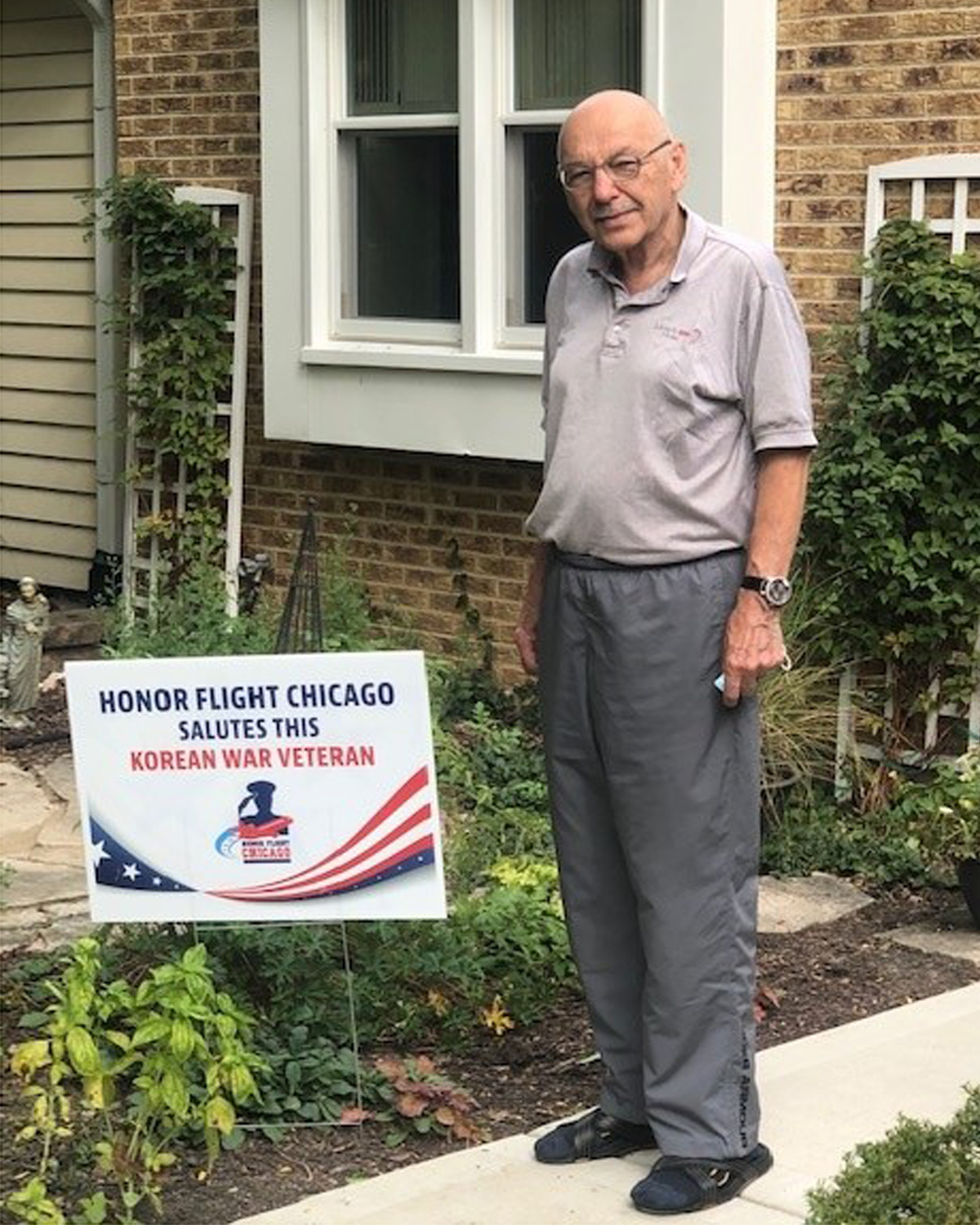
After landing at Inchon Harbor in Korea, he was assigned to the 76th Engineer Construction Battalion. “They needed surveyors and I had an engineering background; it was a good fit.” He remembers spending many weeks in the field sleeping in pup tents at night with alternating respites at base camp in warm Quonset huts.
Over the next 13 months, Ron and his battalion cut pioneer roads up mountains for missile sites, which was always hazardous work. There was the possibility of having heavy construction equipment rolling off, which occasionally did happen with dire results. During the monsoon season, doing rescue work on the Han River, saving people and retrieving bodies, was a grim, but necessary part of service.
To help pass the time, he played “touch” football – without pads or protective head gear – and helped his team win the Korean Theater championship. “We were a bunch of engineer ‘scrub’ people, and we were pretty excited!”
In the fall of 1960, Ron received his rotation papers and was sent back to Ft. Lewis where he completed his service as part of the 4th Infantry Division. He was discharged in March,1961. Upon returning to Chicago, he got a job at a placement agency where he learned which industries and companies were hiring. His clever assessment paid off when he took a job as an insurance underwriter and used it as a springboard to a successful, lifelong career that he thoroughly enjoyed.
A few years after returning, he met his wife, Carol, at a dance through a mutual friend. The couple married in 1966 and soon welcomed two daughters – Lisa and Laura.
After retiring in 2005, Ron has pursued an active slate of volunteer roles including DuPage Pads and Loaves & Fishes. He also participates with the Defense Orientation Conference Association (DOCA) which provides a forum for civilian input on military affairs.
Thank you for your service, Ron. Enjoy your day of honor on HFC’s first flight of the year.


